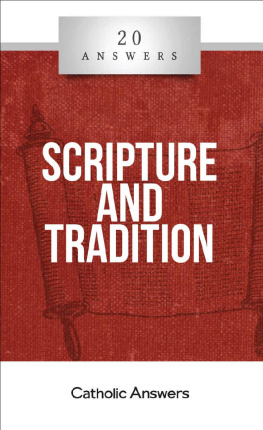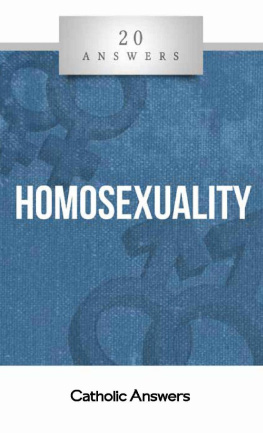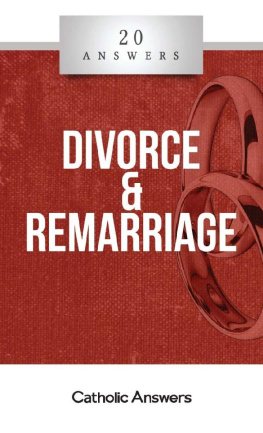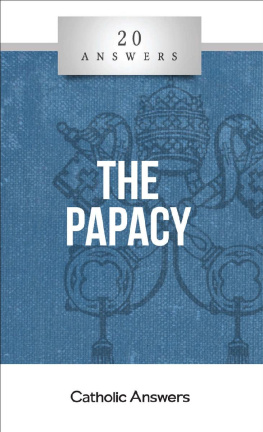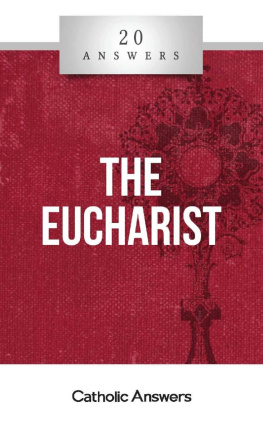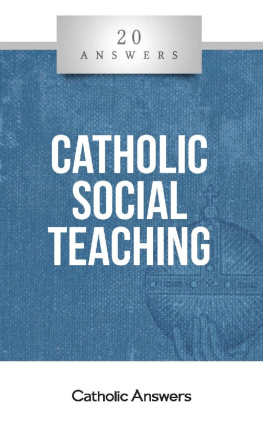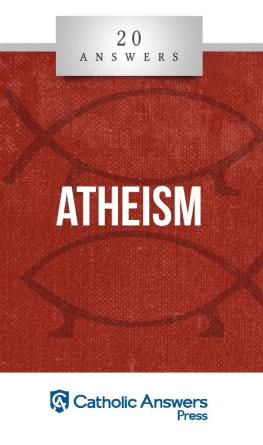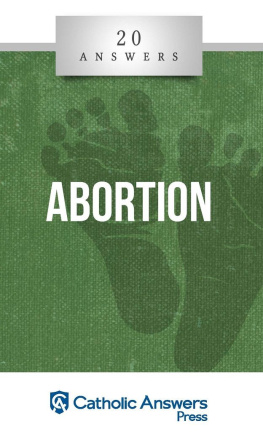Jim Blackburn - 20 Answers- The Early Church (20 Answers Series from Catholic Answers Book 30)
Here you can read online Jim Blackburn - 20 Answers- The Early Church (20 Answers Series from Catholic Answers Book 30) full text of the book (entire story) in english for free. Download pdf and epub, get meaning, cover and reviews about this ebook. year: 2018, publisher: Catholic Answers Press, genre: Religion. Description of the work, (preface) as well as reviews are available. Best literature library LitArk.com created for fans of good reading and offers a wide selection of genres:
Romance novel
Science fiction
Adventure
Detective
Science
History
Home and family
Prose
Art
Politics
Computer
Non-fiction
Religion
Business
Children
Humor
Choose a favorite category and find really read worthwhile books. Enjoy immersion in the world of imagination, feel the emotions of the characters or learn something new for yourself, make an fascinating discovery.

- Book:20 Answers- The Early Church (20 Answers Series from Catholic Answers Book 30)
- Author:
- Publisher:Catholic Answers Press
- Genre:
- Year:2018
- Rating:5 / 5
- Favourites:Add to favourites
- Your mark:
- 100
- 1
- 2
- 3
- 4
- 5
20 Answers- The Early Church (20 Answers Series from Catholic Answers Book 30): summary, description and annotation
We offer to read an annotation, description, summary or preface (depends on what the author of the book "20 Answers- The Early Church (20 Answers Series from Catholic Answers Book 30)" wrote himself). If you haven't found the necessary information about the book — write in the comments, we will try to find it.
20 Answers- The Early Church (20 Answers Series from Catholic Answers Book 30) — read online for free the complete book (whole text) full work
Below is the text of the book, divided by pages. System saving the place of the last page read, allows you to conveniently read the book "20 Answers- The Early Church (20 Answers Series from Catholic Answers Book 30)" online for free, without having to search again every time where you left off. Put a bookmark, and you can go to the page where you finished reading at any time.
Font size:
Interval:
Bookmark:
20 Answers
The Early Church
Jim Blackburn

20 Answers: The Early Church
Jim Blackburn
2018 Catholic Answers
All rights reserved. Except for quotations, no part of this book may be reproduced or transmitted in any form or by any means, electronic or mechanical, including photocopying, recording, uploading to the internet, or by any information storage and retrieval system, without written permission from the publisher.
Published by Catholic Answers, Inc.
2020 Gillespie Way
El Cajon, California 92020
1-888-291-8000 orders
619-387-0042 fax
Printed in the United States of America
978-1-68357-108-7
978-1-68357-109-4 Kindle
978-1-68357-110-0 ePub
About a century and a half after Jesus built his Church, against which the gates of hell will never prevail (Matt. 16:18), a man named Irenaeus, the bishop of Lyons, took it upon himself to list, in order of succession, all the bishops who had thus far succeeded Peter as bishop of Christs Church in Rome:
The blessed apostles, then, having founded and built up the Church, committed into the hands of Linus the office of the episcopate.... To him succeeded Anacletus; and after him, in the third place from the apostles, Clement was allotted the bishopric.... To this Clement there succeeded Evaristus. Alexander followed Evaristus; then, sixth from the apostles, Sixtus was appointed; after him, Telephorus, who was gloriously martyred; then Hyginus; after him, Pius; then after him, Anicetus. Soter having succeeded Anicetus, Eleutherius does now, in the twelfth place from the apostles, hold the inheritance of the episcopate.
As a bishop in what is now France, why would Irenaeus have such concern with the history of the Church in Rome? He tells us, For it is a matter of necessity that every Church should agree with this Church, on account of its preeminent authority. Later he writes of those twelve successors to Peter:
In this order, and by this succession, the ecclesiastical tradition from the apostles, and the preaching of the truth, have come down to us. And this is most abundant proof that there is one and the same vivifying faith, which has been preserved in the Church from the apostles until now, and handed down in truth.
These few words of Irenaeus are rich with information that should be important to everyone who desires to be a disciple in Christs Church. First, they attest to the importance of the successor to Peters office as bishop of Rome. The Church of Rome has preeminent authority that every church should agree with. Historically, we know Peters successor to be the pope of the Catholic Church and his office to be the papacy.
Second, by this succession, the ecclesiastical tradition from the apostles comes down to us. In the Catholic Church, we have come to call this Sacred Tradition, or sometimes, as it comes from the apostles, apostolic Tradition.
Finally, by Irenaeuss words one and the same vivifying faith... preserved in the Church, we can know with certainty that, by adhering to Sacred Tradition, we are embracing the one, true, life-giving Christian faith.
In this volume of 20 Answers , we will explore the early Churchfrom Christ to Irenaeus and beyond to the early fourth century. Papal and apostolic succession, Sacred Tradition, the Magisterium of the Church, and much more will come to life through early Christian writings, the Church Fathers, and Church councils. We will witness the handing on, as Christ intended, of the authentic deposit of faith in Christs one, true Church, the Catholic Church.
1.What is the early Church, and why is learning about it important?
The early Church is authentic Christianity as it existed during the earliest period in Church history, spanning from the time Christ founded the Church to the early fourth century. This is a period marked by widespread persecution and martyrdom of Christians that later eased during the reign of Constantine in the fourth century. Pope Benedict XVI notes, In the history of early Christianity there is a fundamental distinction between the first three centuries and those that followed the Council of Nicaea in 325.
Many Christians today have little or no understanding of the formation and growth of the Church during this period, which set the stage for Christianity as we know it today. Without such an understanding, they fail to realize that the gospel was spread via apostolic succession through Sacred Traditionthe faithful, authoritative handing on of the Christian faithnot by Scripture alone. Indeed, the canon of Scripture (the official list of the Bibles contents) was not settled during the early Church period. That doesnt mean that Scripture played no part, but the Bible did not play quite the same role then as it does today for non-Catholic Christians.
Gods plan for his Church is rooted in the Old Testament and brought to life in the New Testament under the authority of Peter and the apostles. They and their apostolic successors, through Sacred Tradition, faithfully safeguard and teach the deposit of faith, from the earliest generations of Christians to us today. These early Christian writers are important witnesses to the authentic Christian faith, passed down through the ages. Their writings provide great insight into the doctrine and inner workings of the early Church. Whenever error creeps in, it is the apostles and their successorsthe Magisterium of the Churchwho condemn heresy, as they teach with authority from Christ.
At Church councils, they come together to consult, deliberate, and make decisions about Church teaching and discipline. Local councils and subsequent ecumenical councils are to be credited for safeguarding and teaching, as well as formulating more articulately, the authentic Christian faith.
Throughout the early Church period and into the present day, it is Peters successors to his office as head of the apostles who lead the Church. These successorslater known as popesnumber 265 to date. Thus, the Catholic Church today is demonstrably connected to the early Church. This is evidenced further in the administration of the seven sacraments instituted by Jesus, which the Catholic Church continues to administer today. Furthermore, the Catholic Church today continues to hold to the doctrine of the early Churchin a more fully developed state.
Christians today owe a great debt of gratitude to the early ChurchPeter and the apostles, their successors, early Christian writers, Apostolic Fathers, Church Fathers, and local councilsfor maintaining and handing on the faith which was once for all delivered to the saints (Jude 1:3), and for steadfastly remaining the pillar and bulwark of the truth (1 Tim. 3:15), the Catholic Church.
2.How did the Church begin?
God planned the gathering of his faithful people together into a single community from the beginning of human history ( Catechism of the Catholic Church 759). We see this plan played out over the various stages of humanity in Scripture. For example, Gods Old Testament covenant with Abraham leads eventually to the establishment of the kingdom of Israel, a precursor to the Church as it exists today. As God more fully reveals himself to mankind, and human knowledge about God grows, the stage becomes set for God to fully reveal himself in Christ, who finally establishes a single community of believers, Gods one true Church.
Jesus prepares his Church by appointing twelve apostles. The Catechism (CCC) explains: Representing the twelve tribes of Israel, they are the foundation stones of the new Jerusalem. The Twelve and the other disciples share in Christs mission and his power, but also in his lot. By all his actions, Christ prepares and builds his Church (765).
Next pageFont size:
Interval:
Bookmark:
Similar books «20 Answers- The Early Church (20 Answers Series from Catholic Answers Book 30)»
Look at similar books to 20 Answers- The Early Church (20 Answers Series from Catholic Answers Book 30). We have selected literature similar in name and meaning in the hope of providing readers with more options to find new, interesting, not yet read works.
Discussion, reviews of the book 20 Answers- The Early Church (20 Answers Series from Catholic Answers Book 30) and just readers' own opinions. Leave your comments, write what you think about the work, its meaning or the main characters. Specify what exactly you liked and what you didn't like, and why you think so.

